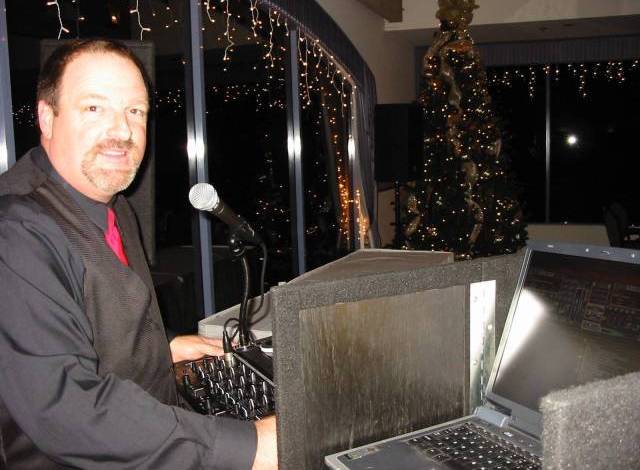






3853 Atlantic Ave.
|
Click here |
Aerial Spraying Against
[The following story is separate from confirmation of LB's first human West Nile Virus case today.]
(August 5, 2004) -- State health officials overseeing CA's West Nile Virus response efforts have indicated that aerial spraying could result in the hardest hit areas if current efforts against the Victoria Kramer, Ph.D., chief of the vector-borne disease section for the CA Dept. of Health Services -- an entomologist overseeing the state's West Nile Virus efforts -- told an August 4 hearing of the "If those [measures] don't work and your adult [mosquito] population is still very high, we're going to need to come in and knock down those adults to reduce the risk of transmission to people," Dr. Kramer said.
Dr. Kramer's statement followed a colloquy with lawmakers by Dr. Richard Jackson, the CA Dept. of Health Services' Public Health Officer, who said:
Dr. Kramer said the state Dept. of Health works "very closely with local agencies throughout the state to evaluate the level of risk and determine the appropriate response level" and the state agency was "developing contingency plans should we have to step in with large scale adulticiding...[W]e are putting into place stand-by contracts, draft emergency declarations and so on. We hope it doesn't get to that point, but we're certainly monitoring it very closely." She added:
Last year in Fort Collins, Colorado where there were hundreds of cases, they did come in and spray from the air around the periphery of Fort Collins in conjunction with doing some ground-based adulticiding, and what they found is that the number of human cases subsequent to that operation were significantly lower than in neighboring communities that did not take such aggressive action. And we have seen in other studies that indeed these tactics can reduce the number of human cases. Meanwhile, on Aug. 4 (as announced in an Aug. 2 release), the Greater Los Angeles County Vector Control District (GLACVCD) escalated to "fogging" (adulticide) a few miles north of LB in parts of Montebello, Pico Rivera and Whittier. Truck-mounted sprayers were sent into areas in these cities along the San Gabriel and Rio Hondo river corridors where several WNV infected mosquitoes and numerous dead birds have been found.
WNV-infected mosquitoes and dead birds have been found in the Lakewood and LB areas (including areas near Heartwell and El Dorado Parks) but at lower levels...and there are no plans at present to begin fogging or "adulticiding" in ELB-Lakewood areas, GLACVCD spokeswoman Stephanie Milladin told LBReport.com. GLACVCD handles mosquito abatement in much of ELB (east of Lakewood Blvd., north of PCH).
Fogging in the Montebello, Pico Rivera and Whittier areas was done at night, starting at about 9 p.m. at Whittier Narrows Dam in Pico Rivera and extending south to Telegraph Road. It took roughly two hours. The second treatment began at about 11:00 p.m. in the Rio Hondo River in Montebello with treatment running to about 2:00 a.m.
"It was determined to start fogging at 9:00 p.m. because mosquitoes are more active earlier in the evening, than compared to the early morning hours due to warmer temperatures," an agency release said, adding that drift into residential areas was not expected and "residential areas will not be posted before treatment. City Halls were given 48 hours notice.
GLACVCD said that since May of 2004, it has been adulticiding at Harbor City's Machado Lake (in Ken Malloy Harbor Regional Park) on an as-needed basis, with seven treatments completed this year.
"The benefit of adulticiding is the immediate impact in reducing the number of adult mosquitoes to prevent people and animals from becoming infected with West Nile virus," the agency release said, adding that the adulticide fog is expected to "permeate the thick vegetation where adult mosquitoes harbor, knocking down their populations...The District is anticipating a 70% decrease in the mosquito population after treatment within the river corridor areas."
The release said the "adulticide ScourgeŽ will be used at 1.1 ounces per acre. The active ingredient is "resmethrin," a synthetic pyrethroid, similar to pyrethrum, which is derived naturally from chrysanthemum flowers and one of the least poisonous insecticides to mammals and low in toxicity because it is quickly broken down into inactive forms. ScourgeŽ is registered by the U.S. Environmental Protection Agency (EPA)."
GLACVCD District Manager Jack Hazelrigg said in the release, "This small amount of active ingredient which is in the form of microscopic droplets, and literally only molecules of the killing agent are used to kill mosquitoes, which essentially negates exposure and risk to people and the environment."
[update] The L.A. County Dept. of Health Services announced as of August 4, there were 19 confirmed L.A. County human cases of West Nile Virus. There have been 85 statewide, including 44 in San Bernardino County, 12 in Riverside County and 1 in Orange County.
There have been two human deaths to date, one in OC and another in San Bernardino County.
GLACVCD reiterated in a written release:
Residents can protect themselves and their family by playing an active role in mosquito prevention by doing the following:
Contact us: mail@LBReport.com |